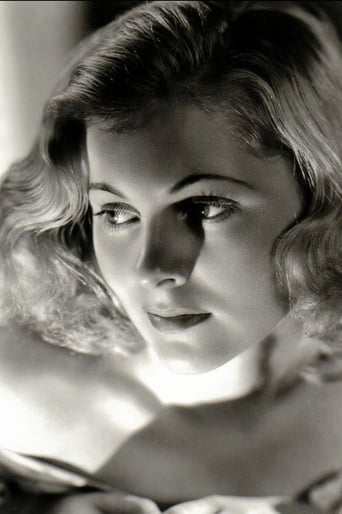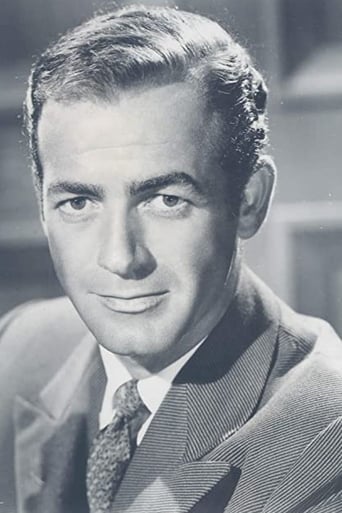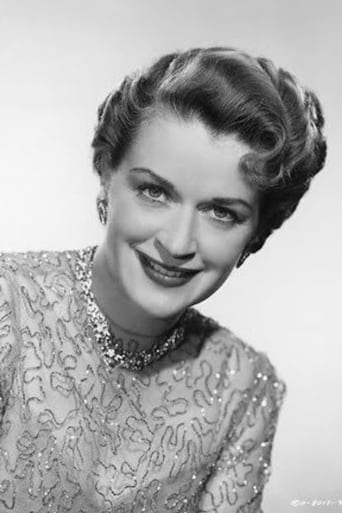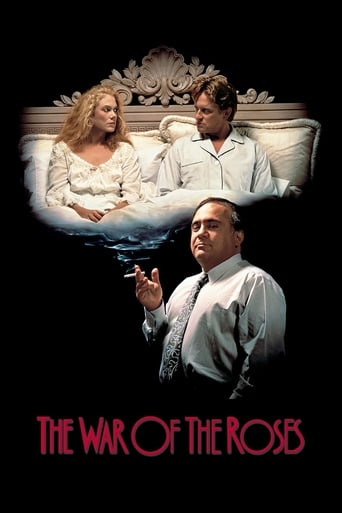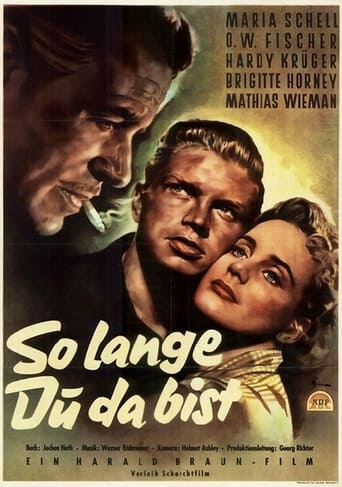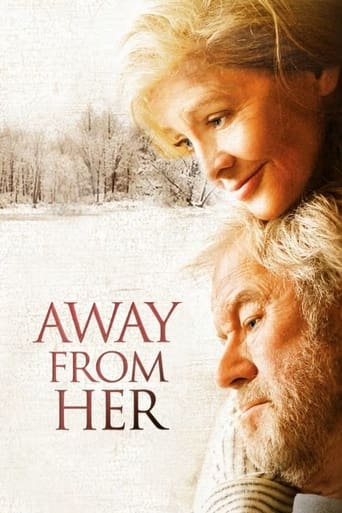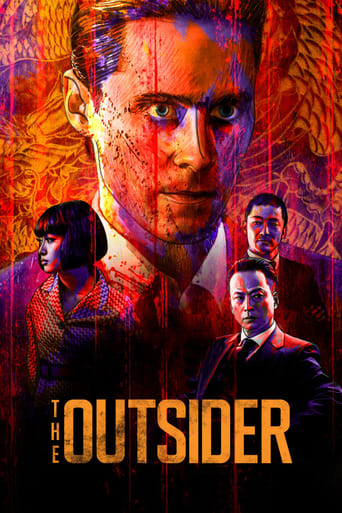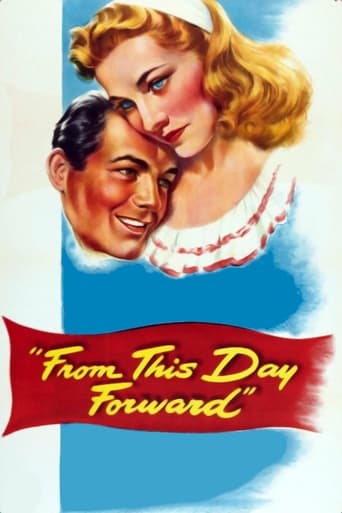
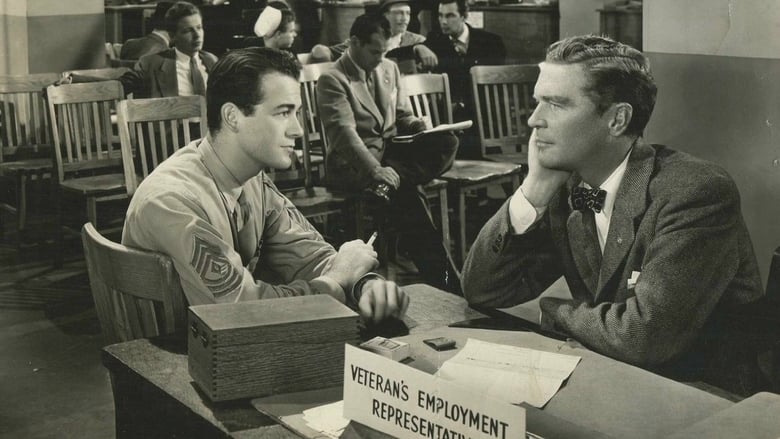
From This Day Forward (1946)
A young American soldier, with an honorable discharge, returns home from World War II to his bride, whom he married after a short courtship and has not seen for several years. The two come together with many trials and tribulations in trying to preserve their marriage in the post-war years.
Watch Trailer
Cast


Similar titles
Reviews
I like the storyline of this show,it attract me so much
Memorable, crazy movie
The movie turns out to be a little better than the average. Starting from a romantic formula often seen in the cinema, it ends in the most predictable (and somewhat bland) way.
what a terribly boring film. I'm sorry but this is absolutely not deserving of best picture and will be forgotten quickly. Entertaining and engaging cinema? No. Nothing performances with flat faces and mistaking silence for subtlety.
This seems to be Joan Fontaine's version of 'Love on the Dole' with Deborah Kerr. It's admirable that she wants to participate in the life of a former soldier who now ends up unemployed after the war. And to a certain degree it fits in with her image of being the devoted housewife who is loyal to her husband. But this is not how most women are, and that's why the film kind of drags its feet with a sense of unreality. There are a few films of this period that deal with unemployment, but it's depressing to watch. It doesn't make good entertainment, and the writer needs to find more creative ways to tell the story of unemployment after the war. The performances are good, but the handling of the subject matter is too linear.
"fRom this day forward " looks like Wyler's 'best years of our lives " released the same year,a "best years" in miniature .The main difference is that Wyler's work took place after the war whereas Berry's movie is part past (the year before the war) and part present (Mark Stevens'coming home) It also deals with the difficulties the soldiers come across with when they return to a country that has sometimes forgotten them.The best scene,however, is to to be found on draft morning:the couple had put the alarm clock forward and forgotten it;the G.I. did not even have a breakfast (the cupboard is bare anyway);through the window ,Fontaine tries to make her husband come back:there's something of Frank Borzage in this sequence ("seventh heaven" "street angel".)Although Stevens' presence on the screen is at least as long as that of Fontaine's ,he is granted a "and introducing...." -it was his debut- and Joan Fontaine is the only name before the title of the movie.
Joan Fontaine was hardly the right choice to play a Bronx housewife and yet, opposite newcomer Mark Stevens, she gives a sensitive, believable performance as a young woman coping with poverty, marriage and the adjustments that have to be made when hubby returns from the war. Small in scale when compared to films like 'The Best Years of Our Lives' which dealt with these kind of problems on a broader canvas. And yet, the realistic sets and the sincerity of the leading players does a lot to make this modest film both watchable and absorbing.Rosemary DeCamp, Harry Morgan and Bobby Driscoll are fine in the chief supporting roles. The soap opera effects that might have ruined this sort of story are missing--instead it settles for an honest treatment of post-war problems faced by many young couples in the '40s.Mark Stevens would later play Olivia de Havilland's husband in 'The Snake Pit' with even more success. (Joan Fontaine's sister, in case any of you don't know it!!)
'From this day forward' is a rare enough film in Hollywood, part of the post-war cycle of coming-home movies, of GIs returning from the ironic certainties and status of war, and finding the stability of home fraught and precarious: jobs gone, identity questioned, loved ones changed. The masterpiece of this cycle is 'The Best Years of our lives', and 'Forward' may not be in that class, despite some critics' admiration for it. But it is a different kind of film from Wyler's - the latter shows the war as an irrecoverable breach, a disjunction between past and present, where the post-war world cannot simply return to that before it. Its heroes were men with secure identities before the war took them away. For Bill Cummings, the war was a break from a life of banality, mediocrity, poverty, unemployment, frustrated ambition, even brushes with the law. Though rigorously focused on the domestic, on men who have been, to put it crudely, feminised, dependent on a bread-winning wife, denied an arena in which to express their masculine status, and thus paving the way for the melodramas of Minnelli and Sirk, the film is not a melodrama in the sense of giddy emotional highs and miserable lows. 'Forward' is rare in Hollywood because it is content to focus on unremarkable ordinariness, the undifferentiated, relentless grind of life, from which brief epiphanies or happiness can be salvaged. These are lives gradually frayed by economic circumstance - there is no melodramatic adultery or contrived plot mechanisms like that; even the singular encounter with the obscenity laws, not exactly the fate of every John Doe, is made bathetic and normalised. The best and most characteristic sequence of the movie is when Bill gets a night-shift job, while his wife Susan still works by day - obviously they rarely meet, one asleep when the other comes home. No-one, of course, is to blame, but frustrations mount, tempers wear, and the couple gradually become less familiar to one another, have to watch what they say, becoming clumsy, resulting in that wonderful scene on the bridge where Bill gives Susan a ghastly anniversary present with money hocked from the tool kit on which he depends for his livelihood. Although the war is a crucial four year break tearing the couple apart, it is absent in narrative terms; present only in the scene where Hitler blares from a megaphone as Susan makes ill-timed plans for motherhood. For most people, the film suggests, in America at any rate, the war was a good thing, a rare burst of prosperity - now, for most people, the grind must begin again. Very few Hollywood films of the period suggested this, such fears were usually displaced onto the nightmares of film noir. And, bravely, the film never cops out - although seemingly upbeat, Bill and Susan have even more problems at the end than when they began - she is pregnant, he is still unemployed, the final gigantic crane shot of this tiny couple on a huge bridge, their uncertain future stretching before them, is very poignant.The film's two main formal devices - moving from the individual to the wider social context, showing that Bill's is only one story among millions, and also the external circumstances that decide his personal well-being; and moving between past and present, ironising the optimism of the title - create a narrative tapestry of unusual depth in Hollywood, a series of vignettes revealing a particular time and place in American history, as well as the people that lived it, the families and individuals, the entrepreneurs and workers, the artists and housewives. This is a thoroughly decent film in the best Hollywood liberal tradition, and I'm glad it was made. I can't say i enjoyed it very much. Maybe I like the 'contrivances' of melodrama too much. The acting is amiable - and Joan Fontaine is enchanting, freed from her mousy persona - but lightweight, especially compared to the giants in Wyler's film. I don't know, maybe decency just isn't always very exciting.


